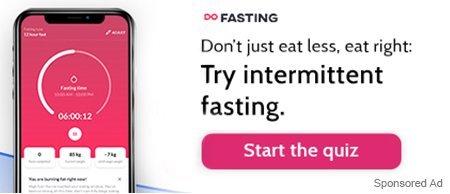What Happens to the Body During Fasting | Benefits of Fasting One Day a Week | How Do I Start Fasting?
We have receive several subscriber questions asking – Is Fasting One Day a Week Healthy? Let’s answer that! Fasting, especially intermittent fasting, has recently been hailed as one of the most effective ways of losing weight, apart from the other health benefits it gives the practitioner. We have to acknowledge that fasting has been a part of religious traditions since ancient times, with festivals like Yom Kippur and Ramadan being striking examples of fasting based on religious reasons.
Intermittent fasting is unique in the sense that it requires you to abstain from food for a certain number of hours in a day, called the fasting window or the hours of fasting, and you eat all your calories in the remaining hours, known as the feeding window.
It is essential to note that intermittent fasting is not a diet trend, as it does not require you to cut down on the number of calories you consume. It only places a restriction on when you consume your calories. and not on how much you consume. Intermittent fasting has many variants, like 12/12 fasting, 14/10 fasting, and the more rigorous One Meal A Day Fasting (OMAD).
The best part about intermittent fasting is that it has something to offer to everyone, whether it be the common target of weight loss, or other more nuanced benefits like autophagy.
Fasting gives rise to polarized opinions in health and fitness circles, especially when it comes to a 24-hour prolonged fast done once a week. Some specialists and dieticians are of the opinion that a 24-hour fast is too extreme and does not aid body weight loss in a sustainable manner.
However, others say that a 24-hour fast can be a safe and effective way of burning fat and losing weight and that it reduces the risk of many diseases, improving health in a comprehensive manner.
In this article, we take a deep look into the mechanism of a 24-hour fast, what its benefits are, and how you should go about it. Read on to gain a better understanding of intermittent fasting for 24 hours and see how it can aid you in your quest for better health.

What Happens to the Body During Fasting?
Your body will always need energy, irrespective of the fact whether you are fasting or not. The primary source of energy is glucose, which is present in carbohydrates. You will find glucose in dairy products, grains, sweets, beans, fruits, and some vegetables. Your liver and muscles will store the glucose that your body produces to be released into the bloodstream as and when your body needs it.
But, during fasting, this mechanism changes. After around 8 hours of fasting, the liver exhausts its stores of glucose in the form of glycogen. At this point, your body will go into a state called gluconeogenesis, flagging off the transition of your body to fasting mode.
There are studies that show that the number of calories burned in the body increases with gluconeogenesis. In the absence of carbohydrates, your body will look to break down its fat stores for energy. At some point in time, your body will run out of fat as well. This is when your body enters starvation mode, where muscle tissue is broken down to produce energy.
However, we will not go as far as starvation mode stretching into consecutive days and only concentrate on what happens to the body after 24 hours without food. Evidence suggests that fasting for a day, once a week, can mimic some of the many different health benefits of longer fasting methods, so let us take a look at these.

Health Benefits of Fasting One Day a Week
While some people have concerns that a one-day fast once a week could be detrimental to overall health, evidence shows otherwise.
On the contrary, a one-day fast has the potential to cleanse your system and give you the same benefits as you would otherwise get from other, more traditional, and longer forms of fasting. Here are the amazing health benefits of fasting for one day a week that are beneficial for many health conditions starting from the next day onward.
24 Hour Fasting Assists with Fat Loss
Instead of treating fasting as a diet trend, think of it as a calorie-restricting mechanism. We only gain weight because we ingest more calories than our daily calorie requirements.
If you can reduce your calorie intake drastically for one day of the week, you will be creating a calorie deficit, leading to fat loss. Anyhow, your body will need energy to function properly, and when it does not get this energy from carbohydrates, it will eliminate the fat stores you have to produce energy. You will also experience an insulin drop during fasting, and this can further boost fat loss.
2 Hour Fasting Controls Your Hormones
When you fast for one day a week, you practically hit the reset switch for your energy balance and hunger hormones. The kind of food we consume has a huge bearing on the levels of leptin (the hormone that signals when we are full of food) and ghrelin (the hunger-regulating hormone).
In obese people, leptin levels are normally higher, and this can be an indication of leptin resistance. This essentially means that while you are overweight, your brain does not recognize it. Ghrelin levels in obese people are lower, leading to overeating and poor food choices.
A study showed that a 24-hour fasting period or alternate day fasting had a positive role to play on the leptin and ghrelin levels of study participants without changing their level of hunger. Thus, hunger levels can remain low even during fasting periods, maintaining a feeling of fullness in the stomach.
24-hour Fasting Reduces Blood Pressure
High blood pressure and hypertension have a link with a lot of cardiovascular problems and medical conditions, which include strokes, high cholesterol levels, and heart disease. However, this study shows that fasting for 24 hours can reduce blood pressure.
The reason for the blood pressure drop is believed to come from increased insulin sensitivity as well as the excretion of norepinephrine from the kidneys, which causes blood vessels to widen and results in a drop in blood pressure.
24 Hour Fasting Resets Your Insulin Sensitivity
Managing your insulin levels is one of the best ways to maintain weight, and fasting has been proven to have a good effect on insulin sensitivity, enhancing the body’s ability to tolerate carbohydrates in an optimal manner.
Insulin happens to be a fat-storing hormone produced and secreted from the pancreas. Insulin allows glucose present in the blood to be used as fuel. After the consumption of a meal, blood sugar levels increase, sending a message to the pancreas to release insulin. This insulin then attaches itself to the cells, allowing them to absorb sugar to produce energy.
Those who are obese have poor sensitivity to insulin, and this leads to the storage of fat in the body. Fasting has been proven to raise the levels of certain specific proteins, helping to reduce insulin resistance and a reduction in the storage of fat in the body.
24 Hour Fasting can Make you Smarter
Yes, you heard us right. If you fast, it can help make you smarter. When you fast, the production of BDNF (brain Derived Neurotropic Factor), a protein, increases. BDNF happens to be a protein that assists in the production of neurons that go on to promote the health of your brain. BDNF is a powerful protein, and it helps to combat different symptoms associated with ALzheimer’s and Parkinson’s disease.
Even fasting for a single day in a week shows a significant increase in BDNF protein levels, and it is safe to assume that it has a big role to play in boosting our brain health.
One day Fasting Boosts the Immune System
It would be easy and natural to assume that eating lesser amounts of food would cause a negative effect on the body’s ability to fight off infection because of a nutrient shortage. However, as human beings, we have evolved to go for periods of time without food and consume fewer calories when regular food was in short supply. This happened to prehistoric men when they had to go hungry in between hunts.
Scientists today suggest that going hungry is a part of our genetic makeup, and there was a study that showed that the intake of fewer calories over a short period of time has a direct correlation to the immunity of tissues inside the body. This is to say that eating less, like a 24-hour fast, once a week can help build a better immune response that will help fight everyday infections.
24 Hour Fasting Helps you to Live Longer
If you fast for a time period of 12-24 hours, it triggers a process known as autophagy. Autophagy is a repair and regeneration process that happens on a regular basis as we age, and it happens on a cellular level on a long term basis.
Old and dead proteins, as well as cellular toxins that abound for too long in our bodies, will clog it up and cause a decrease in the efficiency of daily functions. This has a role to play in speeding up the process of aging and leads to a wide variety of age-related illnesses like dementia.
One of the most efficient ways in which we can speed up the autophagy process is by fasting. Even a one day water fast does wonders to kickstart autophagy, lowering insulin levels and increasing the rate of autophagy.
24 Hour Fasting Reduces Inflammation
Most chronic diseases have a direct link to chronic inflammation. Millions of people all over the world suffer from conditions like osteoporosis and arthritis. Inflammation in our bodies is caused by the release of monocyte cells brought about by improper and bad eating habits. Studies have shown that water fasting, even for a 24-hour stretch in a one-week cycle, has a positive effect on inflammation, putting these monocyte cells in hibernate mode, and thereby guarding against inflammation-related illnesses.
A 24-Hour Fast Increases Human Growth Hormone
Human growth hormone (HGH) has a role to play in muscle building and repair on a cellular level, and it also hastens fat burning. HGH levels are increased after a period of heavy training.
There is evidence to suggest that one of the biggest benefits of fasting for 24-hours is the production of HGH, which leads to positive anabolic effects and repair on a cellular level.

How Do I Start Fasting?
If you are considering starting intermittent fasting, it can be incredibly empowering. It allows you to have your favorite calories, with the only caveat being that you do that in your feeding window. Here are some tips for you.
Delay Breakfast by two Hours
If you eat breakfast at 9 AM, push it back to 11 AM. If you had your last meal at 8 PM the last night, you have already succeeded in fasting for 15 straight hours. Once you get used to the routine, you can push your first meal even further back.
Drink Green Tea and Black Coffee
If you want to accelerate your metabolism, you should go for black coffee and green tea in your fasting window. They have zero calories, so you need not worry about them breaking your fast.
Drink lots of Water
When you are fasting, it is essential to keep yourself hydrated. Try sparkling water, as its bubbles will make you feel full. You can also go for calorie-free drinks.
Don’t Skip a Workout
If you want to derive the maximum results from intermittent fasting, you should never skip a scheduled workout session. Doing cardio exercises is the best way to utilize your fasting sessions to the hilt.
Conclusion – Is Fasting One Day a Week Healthy?
An intense 24-hour water-only fast is as good a method as any when it comes to the benefits of intermittent fasting. Studies have conclusively proven that it has the same benefits as other less intense IF schedules, and it is equally effective in bringing about the changes that we see in other intermittent fasting methods.
Because of its intensive nature, we recommend that you do a 24-hour fast only once a week and that you seek the opinion of a health practitioner before embarking on it.











